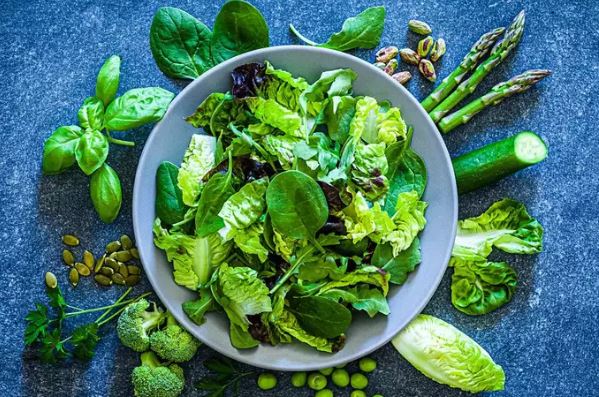Lifestyle
Do you buy ready-to-eat salads? Read this

We all love it when we get vegetables and fruits diced into bite size pieces and are ready to consume. It definitely saves us the labour of cutting and preparing them ourselves.
However, a recent review paper published in the Foods journal gives us the analysis of various studies on minimally processed vegetables (MPVs), keeping a particular focus on the Brazilian market.
The study indicates that even the sanitised salads might also contain disease causing bacteria.
What has the study found?
The research data is presented on hygiene indicators and pathogenic microorganisms. This shows the presence of bacterias like, Escherichia coli with 0.7% to 100% prevalence rate, another bacteria found is Salmonella spp. with 0.6% – 26.7% and Listeria monocytogenes with 0.2% – 33.3% prevalence rate. The data also shows the outbreak of foodborne disease like food poisoning in Brazil from 2000 to 2021, which is associated with the consumption of fresh vegetables. In the research, the authors mention that a clear information of the vegetables consumed, were either fresh ones or MPVs, is not available.
Know more about the bacteria found
The most common bacteria found in the packaged ready to eat salad was found to be Listeria monocytogenes that causes Listeria infections. According to US Centers for Disease Control and Prevention, this bacteria mostly infects pregnant women, newborn babies, people who are 65 years and older and people who have a weak immune system. Salmonella is yet another bacteria that can be found in pre-packaged salads. According to Mayo Clinic, food poisoning from this bacteria can result in symptoms like diarrhoea, fever, and cramps in the abdomen which can last for upto 10 days. According to the US CDC, some infections caused by Escherichia coli or E.coli (STEC) found in the MPVs, are mild in most cases but can be severe or life threatening in others.
What do the experts say?
The consumption market of the MPVs have increased multifold all over the world. Daniele Maffei, a professor in the Department of Agroindustry, Food and Nutrition at the University of São Paulo’s Luiz de Queiroz College of Agriculture (ESALQ-USP) in Brazil, is the last author of the article. She was quoted by ANI, “Fresh vegetables and MPVs are frequently associated with food-borne diseases. The link is a matter of concern. MPVs are sanitised and disinfected, but studies show this process can be flawed, putting consumer health in danger. Rigorous controls are needed to avoid flaws and cross-contamination.”
What are some prevention techniques?
The first option you can try to avoid getting infected with these bacteria is to completely stop the consumption of ready to eat or ready to cook fruits and vegetables. You can enjoy the taste of fresh veggies by purchasing them from the market and using it at home with your accordance. If that’s not the case, then some ways to avoid bacterial infection from MPVs could be to always check for expiration date, spoilage and any odd smell from the package before buying. Always store these packages in a cool place, preferably a refrigerator and avoid keeping them out at room temperature for a longer period of time. Lastly, don’t forget to wash and sanitise your hands and utensils that will be used for cooking.
Avoid the infection
Regular consumption of vegetables is crucial for the survival of humans and maintaining the balance of nutrients, fibres and vitamins that are necessary. “More and more people want healthy food that can be prepared in a short time because of the hurry and stress of everyday life. This trend has led to rising global demand for MPVs,” said Maffei. Try to avoid any kind of bacteria entering your body, it might become a threat to you. Always keep an eye on your diet and wellbeing.










